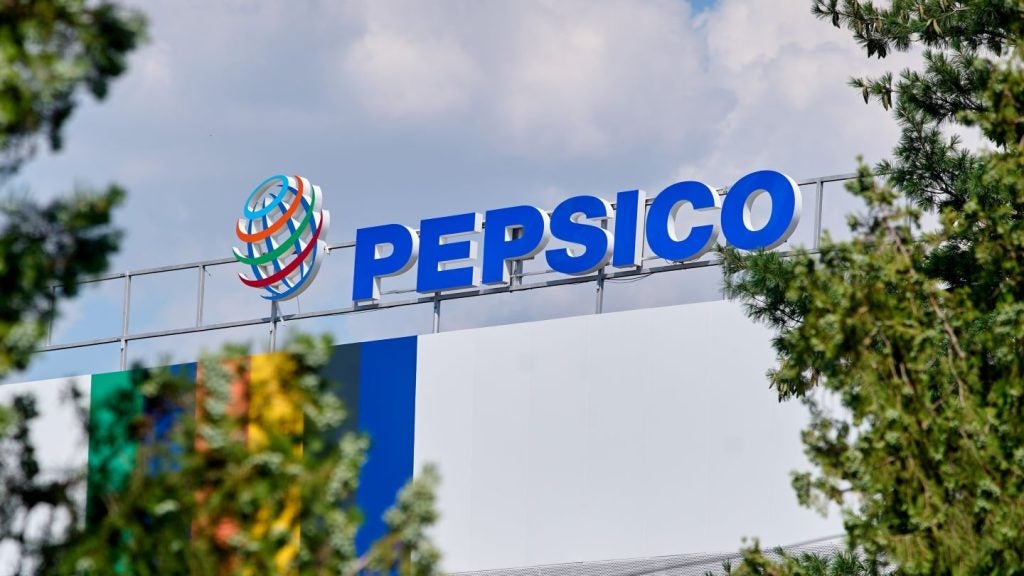In this guide, you will see food manufacturers linking their net zero targets to three areas of emissions – Scopes 1, 2 and 3.
Under the internationally-recognised Greenhouse Gas Protocol, an organisation’s emissions are split into three ‘scopes’.
Scope 1 covers direct emissions from owned or controlled sources. A second, Scope 2, covers indirect emissions from the generation of the electricity, steam, heating and cooling bought and consumed by a reporting organisation.
Scope 3 includes all other indirect emissions that occur in a company’s value chain – and are the largest chunk in a food manufacturer’s output.
Nestlé
The world’s biggest food manufacturer detailed its net-zero plans in 2020, a year after committing to be greenhouse gas emissions-free by 2050.
Then CEO Mark Schneider described the move as a “moral obligation, a moral commitment here to make good on preserving the planet we all live on and, at the same time, it’s about staying relevant to the consumer”.
Nestlé has a target to reduce emissions by 20% by 2025, from its baseline of 2018, and then by 50% by 2030. (The company says it emitted 113 million tonnes of CO2e in 2018, which was its baseline for measuring progress).
The group’s moves to get to net zero have included investment in regenerative agriculture, moves to make all of its packaging recyclable or reusable by 2025 and a bid to source “renewable electricity” at all sites by the same year.
In June 2023, Nestlé set out plans to stop using carbon offsets and withdrew its pledges to make certain brands ‘carbon neutral’. The company had previously issued ‘carbon neutral’ targets for brands including KitKat and Nespresso coffee,
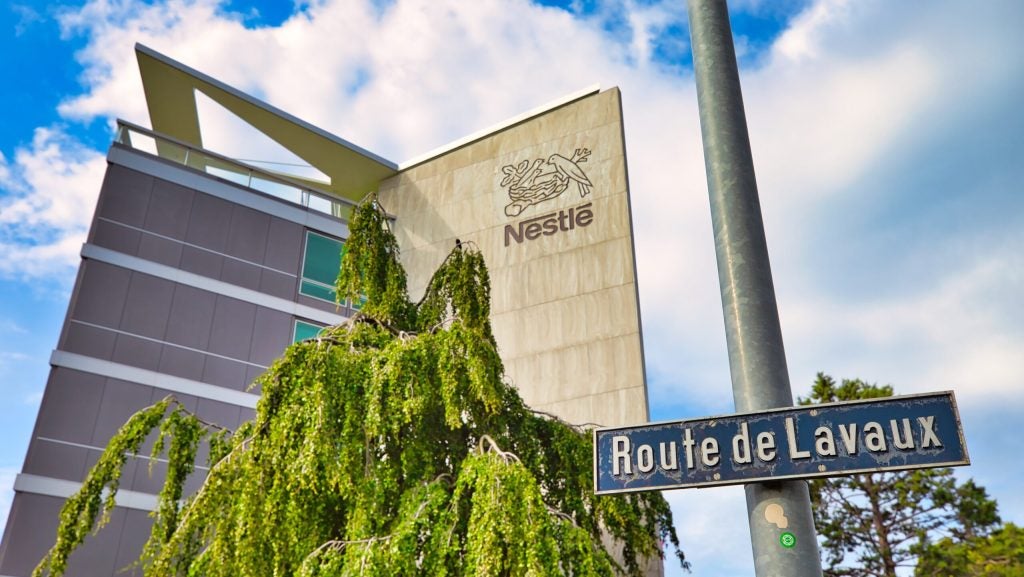
In March 2024, Nestlé said it had achieved a net reduction of 13.5% of its GHG emissions in 2023 compared to its 2018 baseline, while continuing to grow its business over the same period. This included delivering a reduction of more than 15.3% in methane emissions. The company said it has successfully decoupled its growth from its emissions and is on track to reach a 20% absolute reduction of GHG emissions by 2025.
It said that these "significant reductions" in GHG emissions come from programmes and initiatives implemented across all three scopes of activities (scope 1, 2 and 3). In 2023, 94% of the decline of Nestlé's GHG emissions came from reductions in its operations and supply chain.
Antonia Wanner, group head of ESG strategy and deployment, said: "Our progress on emissions reductions is proof of our unwavering commitment to our net zero roadmap. We are working closely with our partners to help make food production more sustainable, while aiming at enhancing livelihoods across our value chain at the same time. A just transition is crucial to accelerate our efforts."
In May 2023, Nestlé’s international cereal venture with General Mills, Cereal Partners Worldwide, set out its target to be net zero by 2050.
First, CPW wants to halve its greenhouse gas emissions by 2030 and reach net zero by 2050.
By 2025, 13% of CPW’s cereals will come from “regenerative agricultural practices”, the Cheerios marketer said.
The venture said it had worked with Quantis, an external consultant, to conduct a life-cycle assessment and help it “prioritise the actions it needed to accelerate and introduce and set science-based targets”. The goals have also been reviewed by the SBTi.
PepsiCo
The US food and beverage giant first formally set out emissions targets in 2021.
The goals were to cut “absolute greenhouse gas emissions across our value chain” by more than 40% by 2030, which includes a 75% reduction in emissions “from our direct operations”; and to “achieve net-zero emissions by 2040”. Those targets are based on a 2015 baseline.
In May 2025, PepsiCo announced a series of changes to its targets on emissions, packaging and, more broadly, net zero.
The US food and drinks giant is now aiming to hit net-zero emissions “by 2050 or sooner” compared to its previous goal of 2040 “versus a 2015 baseline”.
PepsiCo said it was “strengthening the resilience of its business and honing its focus to where it believes it can have the most positive impact”.
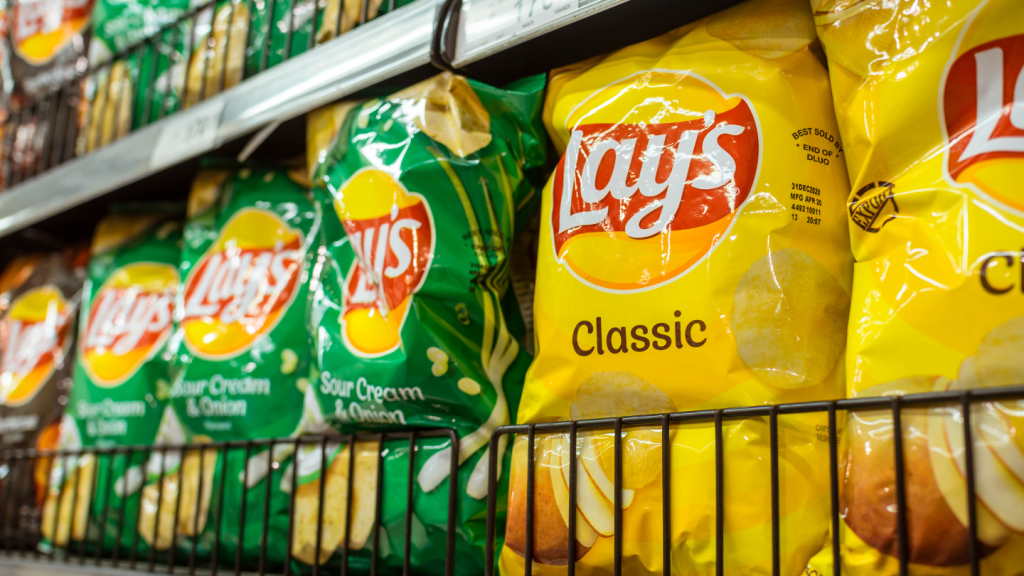
PepsiCo’s specific targets on Scope 1, 2, and 3 emissions link to its 2050 target. The company said the goals “reflect sectoral guidance” from The Science Based Targets initiative.
The Walkers owner is looking to cut its Scope 1 and 2 emissions by 50% by 2030 versus a 2022 baseline. PepsiCo had been targeting a 75% reduction by the same year against a 2015 baseline.
On Scope 3 emissions, often the hardest for companies to tackle, PepsiCo has set out two types related to SBTi guidance: Energy and Industry (E&I); and Forests, Land and Agriculture (FLAG).
The group is aiming for a 42% decrease in E&I emissions by 2030 compared to 2022 levels, a goal that compares to a previous target of a 40% reduction by 2030 against a 2015 baseline.
PepsiCo’s goal for FLAG emissions also includes a new baseline. The company has a goal of reducing these emissions by 30% by 2030 when measured to a 2022 baseline. Its previous target was a 40% cut by 2030 versus 2015.
The changes PepsiCo set out in May 2025 on packaging included revisions on reducing virgin plastic and recycled content. It also pulled its target for “reusable” packaging.
PepsiCo is aiming to cut its use of virgin plastic by 2% year-on-year on average through to 2030. The company’s previous target was for a 20% decrease “derived from non-renewable sources” by the same year.
The group’s goal for its use of recycled content stands at a reduction of at least 40% “by 2035 or sooner”. It had been targeting using 50% of recycled content by 2030.
PepsiCo had been looking to “deliver 20% of all beverage servings through reusable models by 2030”, a target that no longer exists.
The company said it will focus on a wider goal for reusable, recyclable, or compostable (RRC) packaging by design. By 2030, PepsiCo is aiming for at least 97% of its packaging to be “RRC packaging by design … in our primary and secondary packaging in our key packaging markets”.
PepsiCo has broadened its goal for regenerative agriculture goal and said it is aiming for ten million acres by 2030, up from a previous target of seven million acres.
The company said it had “already delivered approximately 3.5 million acres”.
PepsiCo chairman and CEO Ramon Laguarta said: “Our goals must evolve with us to keep our ambition and to deliver on our long-term vision.”
Mondelez International
The snacks heavyweight committed to a 2050 net-zero emissions target across its full value chain in November 2021.
Mondelez said at the time the new pledge was built on its science-based targets set out in 2020. The Cadbury chocolate owner said it planned to lay down “time-bound” interim goals over the next two years in line with limiting global warming to 1.5°C under the Paris Agreement, adding it will monitor progress annually across scopes 1-3.
Early in 2020, the US food manufacturer updated its emissions goals to seek a further 10% reduction across its manufacturing operations by 2025. At the time, the Oreo maker said it was on target to meet its initial objective of a 15% cut by the end of that year as it sought to extend the company’s objectives across the supply chain, or Scope 3 emissions.
In November 2021, Mondelez said it was ahead of target with a 24% reduction in CO2 emissions from manufacturing last year, along with a 33% cut in water usage, compared to its goal of 10%. Total waste was also cut by 31% versus a target of 20%.
Mondelez said it will continue to convert its global manufacturing electricity footprint to renewable energy and replace thermal fuels such as natural gas, diesel and gasoline with green alternatives.
“While we’ve already made significant progress, the road to net-zero will require further transformation of our business as well as global collaboration across industries, sectors and landscapes,” Chris McGrath, the vice president and chief of sustainability at Mondelez, said in November 2021.
“We will remain focused on leveraging proven models and available solutions, while at the same time using our scale and influence to help drive technical advancement, public-private collaboration and investment to incubate innovation.”
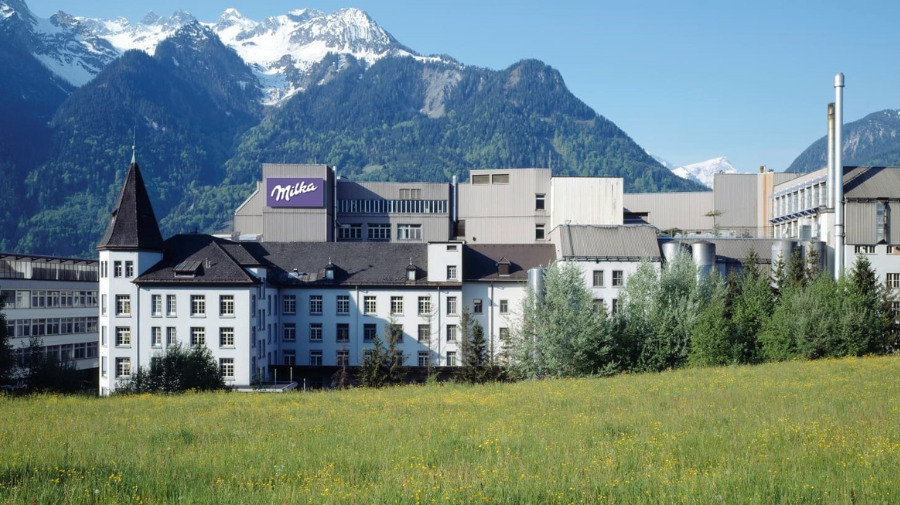
In February 2024, Mondelez announced it was to invest €5m ($5.4m then) in the energy efficiency of its Milka chocolate plant in Austria.
The US snack giant said it planned to add heat pumps that could reduce the gas consumption of the “traditional chocolate factory” by 65%.
The move was part of Mondelez’s efforts to install “energy-efficient technologies” and increase its use of renewable energies.
The group’s 2022 ESG report stated that some 39% of the energy used at its manufacturing facilities that year was generated from renewable sources, up from 32% a year earlier.
Mondelez is aiming to use only renewable electricity across its manufacturing sites by 2030.
The 2022 ESG report reinforced the company's ambition to, reduce end-to-end CO2
emissions by 10% by 2025.
Mars
Mars is a company that has had more than one attempt at setting emissions targets.
In September 2023, the privately-owned group issued a fresh set of net-zero pledges. There was no change to its net-zero commitment, which stayed consistent with its initial pledge. However, what was new was the addition of an SBTI-approved 2030 target. It was the second time in under two years the US giant had updated its pledges on emissions.
The M&Ms sweets owner wants to cut carbon emissions by 50% – or by roughly 15m metric tons – by 2030 across its full value chain. The new target, reviewed by the SBTi, is linked to a 2015 baseline.
The company says it lowered GHG emissions by 16% by 2023 compared to its 2015 figures.
Previously, Mars had pledged to lower emissions by 27% by 2025 against the 2015 baseline in 2017, in line with the 2 degree target that was advocated for at the time – before a 1.5 degree target was widely accepted.
In October 2021, it announced its intention to achieve net zero line with the 1.5 degree or below target. However, the company said in September 2023 it had only achieved an 8% reduction – worth 2.6m metric tons – while “growing the business 60% in that time”.
The October 2021 announcement saw Mars set a new accelerated target to achieve net-zero greenhouse gas emissions across its value chain by 2050, an update on a previous pledge to cut greenhouse gas emissions by 67% by 2050.
Back in 2009, Mars had set a target for its direct operations to reach net-zero by 2040.
Danone
Danone has set a target for zero net carbon emissions by 2050.
Back in 2008, Danone announced a plan to reduce its “carbon intensity” by 30% over five years on operations within its direct scope of responsibility – an objective the company says it “achieved and exceeded” at the end of 2012.
Three years later, the food and beverage manufacturer announced a target for zero net carbon emissions “within its full scope”, which also included agriculture. The French food giant said the pledge means it would be covering “the full scope of its carbon footprint”, which in 2014 amounted to 18.8 million tons.
Danone, home to brands including Activia and Actimel, set out a target to cut “carbon intensity” by 50% between 2015 and 2030. It also committed to starting to reduce emissions in absolute terms before 2025.
Two years later, Danone set two interim targets, approved by the SBTi, to: one, reduce its emissions intensity by 50% across all three Scopes between 2015 and 2030; and, two, cut its absolute emissions by 30% on Scopes 1 and 2 between 2015 and 2030.
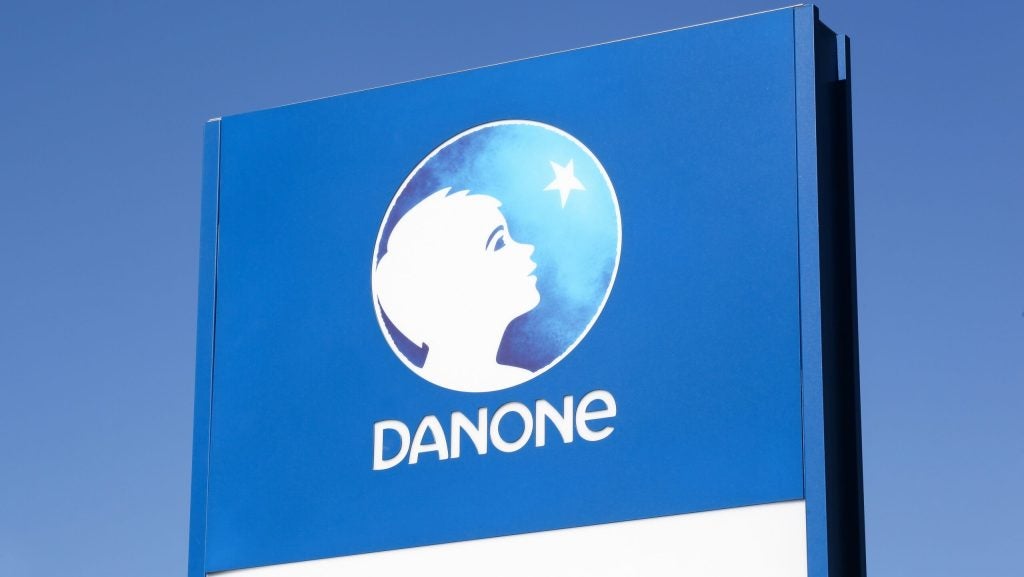
In 2022, Danone set a target of cutting the methane emissions generated by the fresh milk used in its products by 30% by 2030. Methane emissions represented 25% of Danone’s full scope emissions, the company said at the time. Fresh milk accounted for approximately 70% of Danone’s methane emissions. The remaining 30% was made up by indirect dairy ingredients.
In January 2023, Danone confirmed it intends to cut the methane emissions generated by the fresh milk used in its products by 30% by 2030.
It said it expects to remove 1.2 million tonnes of the carbon dioxide equivalent of methane emissions. The company said it had cut its methane emissions by “circa 14%” in the 2018 to 2020 period.
Danone revealed it had launched a new partnership with the US-based organisation Environmental Defense Fund to help with its efforts on methane and would work with farmers, other companies and governments on regenerative practices to help it cut methane emissions.
In November 2023, Danone partnered with the Global Methane Hub (GMH) to invest in research around the reduction of enteric emissions in its dairy farming.
The dairy giant said it will be “the first corporate funder” of GMH’s “globally coordinated” Enteric Fermentation R&D Accelerator.
The project intends to develop scalable solutions to help farmers limit enteric fermentation, a digestive process occurring in ruminant livestock which releases methane into the atmosphere.
In September 2024, Danone and Japan-based food manufacturer Ajinomoto Group joined forces to cut greenhouse gas (GHG) emissions in the French giant’s milk collection network.
Danone signed up to use AjiPro-L, a supplement used in cow feed, at the farms from which it collects milk.
In November 2024, Danone joined forces with shipping and logistics giant Maersk in an attempt to cut GHG emissions from its ocean freight operations.
Bel Group
France’s Bel Group has set out to reduce emissions by “one-quarter” by 2035 across the dairy firm’s value chain.
The owner of the Babybel and Laughing Cow cheese brands said in February 2022 it joined the SBTi in 2017 when the global objective was to keep global warming below 2C. Its new commitment for Scopes 1, 2 and 3, will involve the “integration of carbon tracking as a tool for steering its activities”.
A spokesperson for Bel, which also produces dairy-free and hybrid cheeses, confirmed the company set out plans in 2019 to reduce Scope 1 and 2 greenhouse gas emissions by 42% versus 2017 levels by 2030 – “in metric ton CO2 eq./metric ton produced” – and cut Scope 3 emissions by 27% over the same time frame and the same benchmark year.
“Based on our previous trajectory and by working with business experts, we have reviewed our goals to create a more ambitious action plan to help us reach 1.5°C,” the spokesperson said.
“Greenhouse gas emissions at the group’s industrial sites come mainly from the energy mix and the processes used to manufacture its products. The group is tackling sources of emissions to reduce the carbon intensity of its production to move toward carbon neutrality for scopes 1 and 2 by 2025. From 2008 to 2020, we reduced our carbon emission from 60% on scopes 1 and 2.”
Bel will pursue initiatives to reduce its energy consumption and energy efficiency at its production sites and also use and develop renewable energy sources.
The spokesperson added Bel has defined other objectives and considerations: “What we are already doing (decarbonisation plan for our plants, European feed for dairy cows and grazing for our French breeders, evaluation of the carbon footprint of dairy farms, and a carbon reduction process with all stakeholders in the chain).
“What we believe and anticipate (our economic development, dairy/plant-based rebalancing) [and] the bets we are making on the future with technological breakthroughs such as hydrogen transport.”
Bel declined to provide details on its success in cutting emissions to date until the new objectives are certified by the SBTi.
The spokesperson added with respect to Bel’s investment plans to achieve its targets that it is “hard to quantify in its entirety, since it is distributed across all of our departments”.
However, “since 2018 and since 2020, we have invested more than €50m (US$56.5m) to support our French breeders in the transformation of the dairy sector; nearly €69 million was invested between 2009 and 2020 to reduce Bel’s environmental footprint”.
Bel emphasised it is working with dairy farm suppliers to “develop more sustainable farming practices”.
Chairman and CEO Antoine Fiévet said: “Our new +1.5°C trajectory will have a significant impact, for everyone. It involves our employees as well as all our stakeholders, from our upstream dairy operations to the consumer.”
In August 2023, Bel launched the Sustainable Purchasing Charter which demands of its suppliers that they "continuously develop and improve an environmental management system which minimises their impacts on the environment and reduces energy and water consumption, CO2 emissions, as well as consumption of non-renewable natural resources or non-eco-friendly products".
Suppliers must also promote the development of environmentally-friendly agriculture and technologies and make their best efforts in the innovation process to offer products with the lowest possible environmental impact throughout their life cycle.
FrieslandCampina
Dutch dairy major FrieslandCampina is aiming to “produce net climate-neutral dairy by no later than 2050”.
The co-operative has laid out emissions targets for 2030. Against a 2015 baseline, it has a goal of cutting its Scope 1 and 2 emissions by 63%.
FrieslandCampina has divided its Scope 3 emissions in two classifications. By 2030, the company is aiming to reduce Scope 3 emissions from milk from its member dairy farmers by a third against that 2015 base year. FrieslandCampina says it is targeting a 43% reduction in its “other” Scope 3 emissions, including raw materials and packaging.
Announcing the targets in April 2022, the group said its moves to reduce emissions were “well underway”. It pointed to a 28% cut in its Scopes 1 and 2 emissions between 2015 and 2021.
Hein Schumacher, CEO at the time, said: “Our detailed climate plan demonstrates that we are keen to do our bit. Our targets and concrete actions provide a clear road map towards a significant reduction in greenhouse gas emissions by 2030, putting us on course to achieve net climate-neutral dairy by 2050.”
The dairy group joined the Dutch Sustainable Growth Coalition (DSGC), a group of Dutch multinationals that work towards sustainable development.
The coalition is supported by the Confederation of Netherlands Industry and Employers (VNO-NCW) and the Royal Association MKB-Nederland for small and medium-sized businesses. It also belongs to the BICEPS Network, which works towards cleaner sea transport through innovation and conditions for suppliers.
General Mills
The US-based manufacturer of brands such as Betty Crocker, Pillsbury and Old El Paso pledged in September 2020 to reduce emissions by 30% over the next decade.
General Mills has also committed to a longer-term goal to achieve net-zero emission levels by 2050. The US-based manufacturer said the commitment was calculated using methodologies approved by the SBTi.
As of the end of General Mills’ 2020 fiscal year, the company says its “GHG emissions footprint had decreased 16% compared to our 2010 baseline”.
It said it accomplished this by using energy more efficiently across its owned facilities and by converting to less greenhouse gas-intensive forms of energy.
General Mills is to work with farmers and suppliers to address “key growing dimensions including GHG emission reduction, water management, and soil health in an effort to establish more climate-resilient farms”.
In its 2023 Global Responsibility Report, General Mills announced that through fiscal 2022 it reduced emissions by 1% across its entire value chain compared to the 2020
baseline.
"Within our owned operations, however, we have reduced emissions (Scope 1 and 2) by 26% compared to last year and 49% compared to our 2020 baseline. These reductions were driven by continued progress in our commitment to sourcing renewable electricity, improvements in operational waste disposal and reduced purchasing requirements," it said.
It added: "Scope 3 emissions remain a challenge to our full value chain progress. That is why we are in the process of developing an enhanced climate roadmap to ensure we continue to see emissions reductions at a rate that will achieve our 2030 and 2050 goals."
JBS
In March 2021, Brazilian meat giant JBS committed to net-zero greenhouse-gas emissions by 2040.
The meat sector has long been under scrutiny for the emissions it generates and JBS claimed to be “the first major company in its sector to set a net-zero target”.
The pledge spans the company’s global operations, including Pilgrim’s Pride in the US and Moy Park in the UK, as well as its supply chain of agricultural producers, suppliers and customers.
As part of JBS’ commitment, the company signed on to the United Nations Global Compact’s Business Ambition for 1.5°C initiative, which aligns with the aim of the Paris Agreement to limit global warming.
JBS said it will provide a “time-bound roadmap” that provides interim targets consistent with the criteria set forth by the UN’s 1.5°C trajectory. The company plans to provide annual updates on progress to ensure transparency and disclose its financial risks linked to climate change, in line with the Task Force on Climate-related Financial Disclosure (TCFD) initiative.
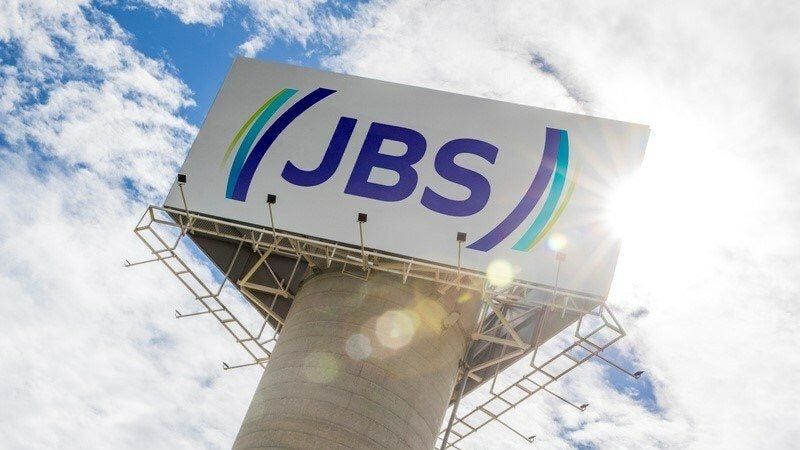
To get to net-zero, JBS outlined plans to invest more than US$1bn over the next decade in emission reduction projects and to eliminate deforestation from its global supply chain by 2035. On emissions from facilities, JBS said it will cut its “global Scope 1 and Scope 2 emission intensity by at least 30% by 2030 against [the] base year 2019”.
JBS is also set a target to use only renewable electricity in its facilities by 2040.
And it said it will invest in research and development projects to assist producer efforts in regenerative farming, including carbon sequestration and on-farm emission mitigation technologies.
In July 2021, JBS said it had advanced by five years the date by which it wants to see zero deforestation by its suppliers in a number of domestic regions.
It now wants to end deforestation in the supply chain by 2025 in the Cerrado, Pantanal, Atlantic Forest and Caatinga biomes, matching a previously-announced commitment for the Amazon.
In February 2024, New York state launched legal action against JBS's US operation over allegations of environmental claims that deceive customers.
State Attorney General Letitia James filed a lawsuit against the group’s US arm.
James called on the New York County Supreme Court to demand JBS drops its 2040 net-zero pledge.
Within the filing, James claimed the company has “repeatedly and persistently made unsubstantiated and misleading environmental marketing claims to New York consumers”.
Responding to the claim in a statement, JBS said it took its sustainability goals “very seriously”.
Unilever
Unilever has been seen as among the companies to have set the pace on corporate sustainability. The FMCG giant's Sustainable Living Plan, launched way back in 2010, set sustainability targets seen as ambitious and aimed to “decouple” growth from environmental impact.
The Sustainable Living Plan was a ten-year project. By 2020, Unilever had outlined a new target for its carbon emissions among measures the Hellmann’s mayonnaise maker said underlined it was “taking even more decisive action” on the environment.
Unilever said it would aim to have no carbon emissions from its operations and to “halve the greenhouse-gas footprint of our products across the value chain” by 2030. The company added it was “committing to net zero emissions from all our products by 2039 – from the sourcing of the materials we use, up to the point of sale of our products in the store”.
In March 2024, the company set out what it described as new "higher ambition" climate emission goals, including near-term Scope 3 greenhouse gas (GHG) reduction targets for the first time.
Unilever said it had already "succeeded in reducing emissions in our operations by 74% in absolute terms versus 2015" and also pointed to a 21% cut "in the emissions intensity of our products across our value chain" against a 2010 baseline. However, the company conceded "achieving significant absolute reductions in our Scope 3 emissions has proven more challenging".

Specifically, Unilever wants to reduce in absolute terms its operational emissions (Scopes 1 and 2) by 100% by 2030 against a 2015 base year.
The company set out specific groups of Scope 3 emissions it wants to target. By 2030, Unilever is aiming to reduce its “energy and industrial GHG emissions” by 42% versus 2021.
Unilever defined these Scope 3 emissions as those from: purchased goods and services (associated with ingredients, packaging); upstream transport and
distribution, energy and fuel-related activities; direct emissions from use of sold products; (those linked to HFC propellants); the end-of-life treatment of sold products and downstream leased assets (those associated with ice cream retail cabinets).
Elsewhere, the company set a target for Scope 3 greenhouse-gas emissions from forest, land and agriculture. These cover emissions from purchased goods and services associated with ingredients. Unilever is targeting cutting these emissions by 30.3% by 2030 from a 2021 base year.
Together, the two targets for 2030 represent a 39% absolute reduction in Scope 3 emissions, the company said.
By 2039, Unilever wants to achieve net zero GHG emissions covering Scopes 1, 2 and 3, "excluding indirect consumer use emissions".
In a joint statement, Unilever CEO Hein Schumacher and chair Ian Meakins said: “The challenges of the climate transition are clear, especially if the world is to reduce GHG emissions at a pace consistent with limiting global warming to 1.5°C above pre-industrial levels, avoiding the worst effects of climate change."
Kraft Heinz
In 2017, Kraft Heinz – formed two years before with the merger of Kraft Foods Group and H.J. Heinz – released its inaugural CSR report, which included a target of reducing greenhouse gas emissions by 15% by 2020 (per ton of product, as measured against a 2015 baseline).
In the company’s 2021 ESG report, it disclosed it had in fact managed to lower its GHG emissions by 8.56% – while also missing targets on water use, energy and waste.
Kraft Heinz said it had failed to meet the targets as it “contended with former supply chain challenges”.
Water use decreased by 0.02%, energy use decreased by 2.69%, while GHG emissions decreased by 8.56%.
In its 2021 ESG report, Kraft Heinz said: “We recognise the shortcomings in our execution in these areas and we have both identified and learned from the gaps, as well as committed to substantially improve in these areas in part through greater accountability, prioritisation and real-time management. Our more comprehensive approach is paying off with our new targets.”
In December 2021, the baked beans and soup manufacturer unveiled a fresh set of targets. Kraft Heinz announced a pledge to achieve net zero greenhouse gas emissions across all three Scopes by 2050. The company also set out a “milestone” on that pledge; it is targeting a reduction of 50% across all three Scopes by 2030.
Kraft Heinz is planning to set a science-based emissions reduction target, in alignment with the SBTi, by 2023. The same year, the company says it plans to provide more information on its “roadmap” to net-zero emissions by 2050.
In July 2023, Kraft Heinz announced it had adopted a policy to end deforestation in its supply chain. The company committed to no-deforestation across its primary commodities with a target date of 2025.
Kraft Heinz said the policy has been developed with guidance from the Accountability Framework initiative and the Science Based Target Initiative’s forest, land and agriculture guidance.
In February 2024, Kraft Heinz what it calls “an important step forward” in its efforts to reduce carbon emissions.
The company signed an agreement with Carlton Power, a UK energy infrastructure development company, to explore the potential development of a 20MW green hydrogen plant at its Kitt Green manufacturing facility in Wigan in north-west England.
Carlton Power projects director Eric Adams said the move is significant as “other food companies wishing to decarbonise their operations, could follow the example of Kraft Heinz”.
One of the largest food processing plants in Europe, Kitt Green produces 250,000 tonnes of food annually, including Heinz’ famous baked beans.
Tyson Foods
In July 2022, the US meat giant released its 2021 Sustainability Report which it said reflects the company’s “continued focus on supporting its people and communities, driving product responsibility and working to sustain natural resources”.
John Tyson, EVP strategy and chief sustainability officer, said: “More than ever, Tyson Foods is operating as part of a global food system and we have a critical role to play in responsibly producing food that is affordable, accessible and nutritious.”
The Jimmy Dean and Hillshire Farm brands owner said that in 2021 it had begun a process to further establish long-range 2030 goals and metrics that will “help more deeply embed its environmental, social, and governance (ESG) priorities and commitments into its business”.
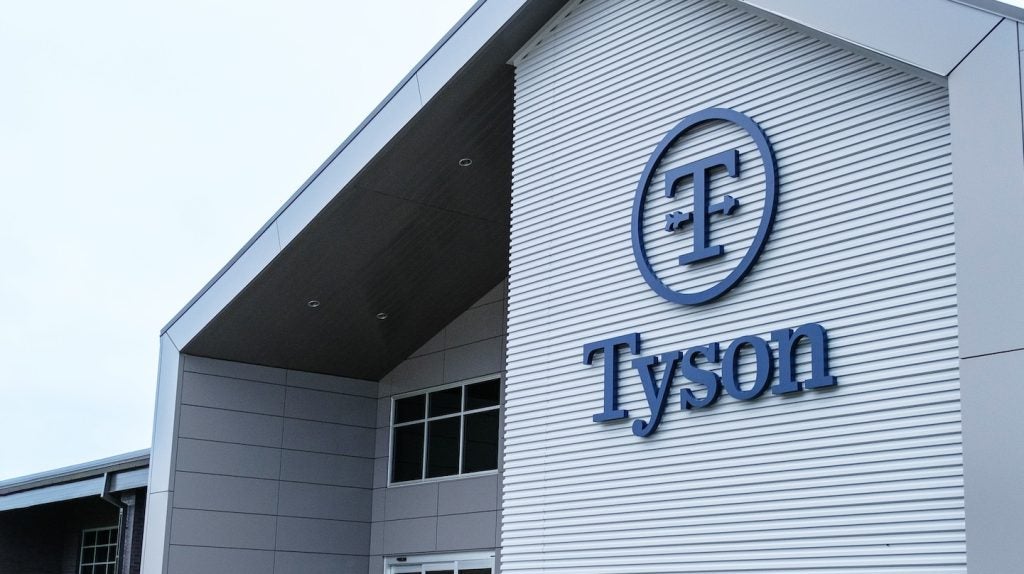
Its commitments - Working Toward Sustaining Natural Resources and Achieving Net Zero - include "driving practices in its own operations and supply chains to sustainably produce protein for a growing population within planetary boundaries".
It announced an ambition to achieve net-zero greenhouse gas emissions, including scope 1, 2 and 3 emissions, by 2050
In the land stewardship area, it said it had developed a beef-focused GHG emissions accounting framework to “capture cradle-to-gate emissions and verify emission reductions through more sustainable agricultural practices”.
Campbell Soup Co.
US packaged food major Campbell Soup Co. announced in March 2022 new science-based targets to reduce greenhouse gas emissions as part of its overall environmental, social and governance (ESG) strategy outlined in its 2022 corporate responsibility report.
Campbell’s targets commit to reduce absolute Scope 1 and 2 greenhouse gas emissions 42% by fiscal 2030 from a fiscal 2020 base year and reduce absolute Scope 3 emissions from purchased goods and services and upstream transportation and distribution 25% within the same time frame.
Mark Clouse, Campbell’s CEO, said: “We are taking a holistic approach to ESG and focusing on areas where we believe we can make a meaningful difference as we unlock our full growth potential and create value for all our stakeholders.”
The company’s corporate responsibility report revealed it has improved the sustainability of its packaging, with Pepperidge Farm signature paper bags now fully recyclable and redesigned V8 multi-serve bottles to eliminate 2.5 million pounds of plastic per year.
Campbell has also transitioned 100% ofits palm oil supply to Roundtable on Sustainable Palm Oil (RSPO) certified sources.
Del Monte Foods
US canned fruit and vegetable manufacturer Del Monte Foods announced in April 2022 a commitment to achieve net-zero emissions by 2050 in line with the SBTi's Net-Zero Standard.
It has also committed to near-term science-based targets to reduce Scopes 1, 2 and 3 carbon emissions.
The company describes its plan as “a clearly defined and measurable path to not only achieve its long-term goal of net-zero emissions by 2050, but also drive near-term and consistent progress for reducing emissions across its supply chain”.
Greg Longstreet, the company’s president and CEO, said: “As Growers of Good, creating a healthy and more hopeful tomorrow has been at the core of Del Monte Foods' purpose for over 130 years. Committing to a net-zero emissions goal, aligned with SBTi, extends our environmental sustainability commitments and gives us aggressive and measurable milestones to reach as we strive to nourish the planet, people and communities for many generations to come.”
To achieve its net-zero goal, Del Monte Foods plans to reduce or eliminate the majority of its existing emissions rather than purchase external carbon credits to offset emissions.
Cloetta
Sweden-based confectionery group Cloetta announced in July 2022 it had set climate targets to reduce greenhouse gas emissions in support of the Paris agreement. The targets have now been approved by the SBTi.
It has committed to reduce its greenhouse gas emissions within Scopes 1, 2, and 3 by 46% by 2030 from a 2019 base year.
Henri de Sauvage-Nolting, CEO of Cloetta, said: “Setting ambitious climate targets requires a step-change in the way we as a company address our actions and responsibility for our climate footprint. It will encourage and require collaboration throughout our entire company and supply chain."
Cloetta said it aims to achieve its targets by eliminating high-impact greenhouse gases from products and improving efficiency throughout its operations and supply chain. It also intends to invest in a new sustainable greenfield facility in the Netherlands.
In March 2024, it published its Annual and Sustainability Report 2023 which revealed total CO2e emissions decreased with approximately 10% compared to its 2019 base-year.
CEO Henri de Sauvage-Nolting said: "Last year, we made further progress within our climate action programme by improving our data collection process through collaboration with value chain partners for our scope 3 emissions and structured our initiatives to accelerate the reduction of our scope 1 and 2 emissions."
Fonterra
In July 2023, New Zealand dairy heavyweight Fonterra announced a "lift in its decarbonisation ambition" with a new target for Scope 1 and 2 emissions that it said would be achieved by bringing forward some of its work to get out of coal.
Fonterra CEO Miles Hurrell said the co-op is targeting a 50% absolute reduction in Scope 1&2 emissions by 2030, from a 2018 baseline, an increase on its previous target of a 30% reduction by 2030.
“Fonterra’s Scope 1 and 2 emissions largely come from our manufacturing operations and supply chain. Strengthening our emissions reduction target supports our ambition to be net zero by 2050,” he said.
Achieving the new target will require Fonterra to continue to undertake energy efficiency improvements and fuel switching to renewable energy source activities across its milk collection fleet and manufacturing sites, with a focus on the six where it uses coal.
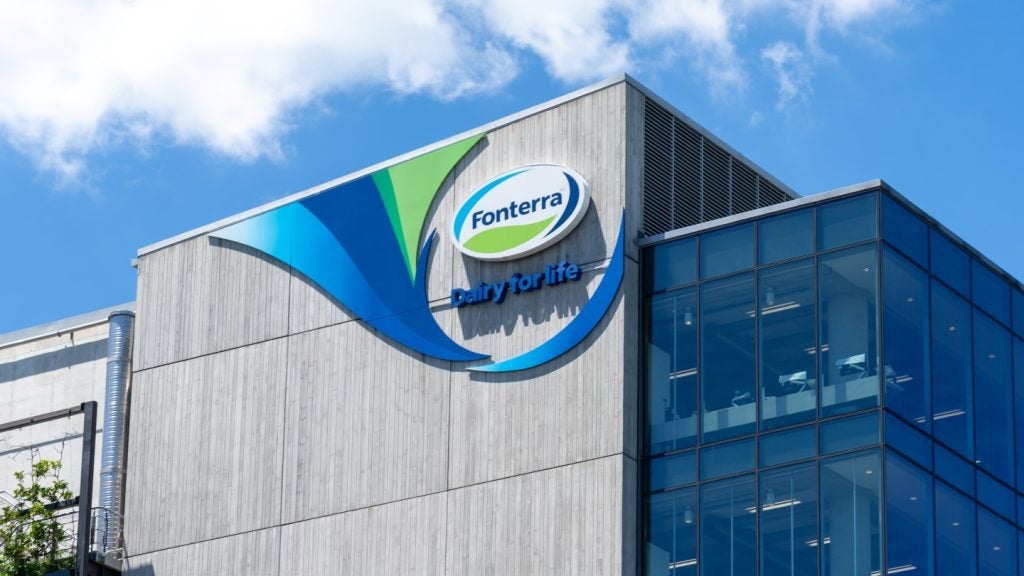
In November 2023, the company also set a goal to hit 30% "intensity reduction" in its farm-related emissions by 2030. The new target will look to cut emissions intensity by tonne of fat and protein corrected milk (FPCM) collected by Fonterra.
Some 86% of its emissions are said to currently come from its member farms.
To hit the target, the organisation said it will work towards a 7% reduction through sharing “farming best practices” around feed quality and herd performance. An additional 7% of emissions will also be cut through implementing “novel technologies” via AgriZeroNZ – a joint venture between large agribusiness companies and the government.
It also plans to cut 8% of emissions by removing carbon from current and new vegetation and an extra 8% from “historical land-use change conversions to dairy.”
In February 2025, Nestlé, Mars and Fonterra set out plans to give the dairy group’s farmer members support to cut emissions.
Fonterra said the food-manufacturing giants – two of the company’s customers – would fund “new incentives” for farmers.
Lindt & Sprüngli
In December 2023, Swiss chocolatier Lindt & Sprüngli announced science-based climate targets.
It said it is targeting carbon reductions by 2030 and reaching net-zero by 2050.
The company launched near- and long-term science-based emissions reduction targets with the Science Based Targets initiative.
The Kilchberg-headquartered business is targeting intermediate carbon reductions of 42% – Scope 1 and 2 – and 30.3% – Scope 3 – by 2030 and reaching net-zero by 2050.
Lindt & Sprüngli’s targets have been verified by the SBTi.
Most of the emissions in the company’s carbon footprint, comprising around 95%, come from Scope 3-related activities, meaning activities not under its direct operational control. Cocoa, other raw materials such as dairy and sugar, transport and packaging are the biggest contributors to its footprint.
Lindt & Sprüngli said it will prioritise decarbonisation efforts and neutralise all residual emissions to reach the net-zero goal.
Hilton Food Group
In November 2024, UK meat and seafood major Hilton Food Group published its first transition plan to achieve net-zero by 2048.
The plan, which encourages its partners to align to its strategy and deliver their own sustainability goals, is said to be aligned with the UK Government’s Transition Plan Taskforce (TPT) disclosure framework.
The company said its plans have be tailored to the specific needs of each of its sites, accounting for local technology, weather conditions and energy demand, and designed in collaboration with customers to measure and reduce the
environmental impact of products across the value chain.
Hilton's plan is built on its Science-Based Targets, approved in March 2024, with plans to reduce Scope 1, 2 and 3 greenhouse gas emissions accelerated earlier this year.
Its reduction targets are focused on business operations, packaging, ingredientsm livestock and seafood.
Steve Murrells, group CEO, said: “At Hilton Foods, our Sustainable Protein
Plan is at the heart of our operations. A huge part of this is how we can reach net zero by 2048. It is an ambitious target but this transition plan - one of the first of its kind in this sector - will help us stay focused and drive forward change in our own business."


